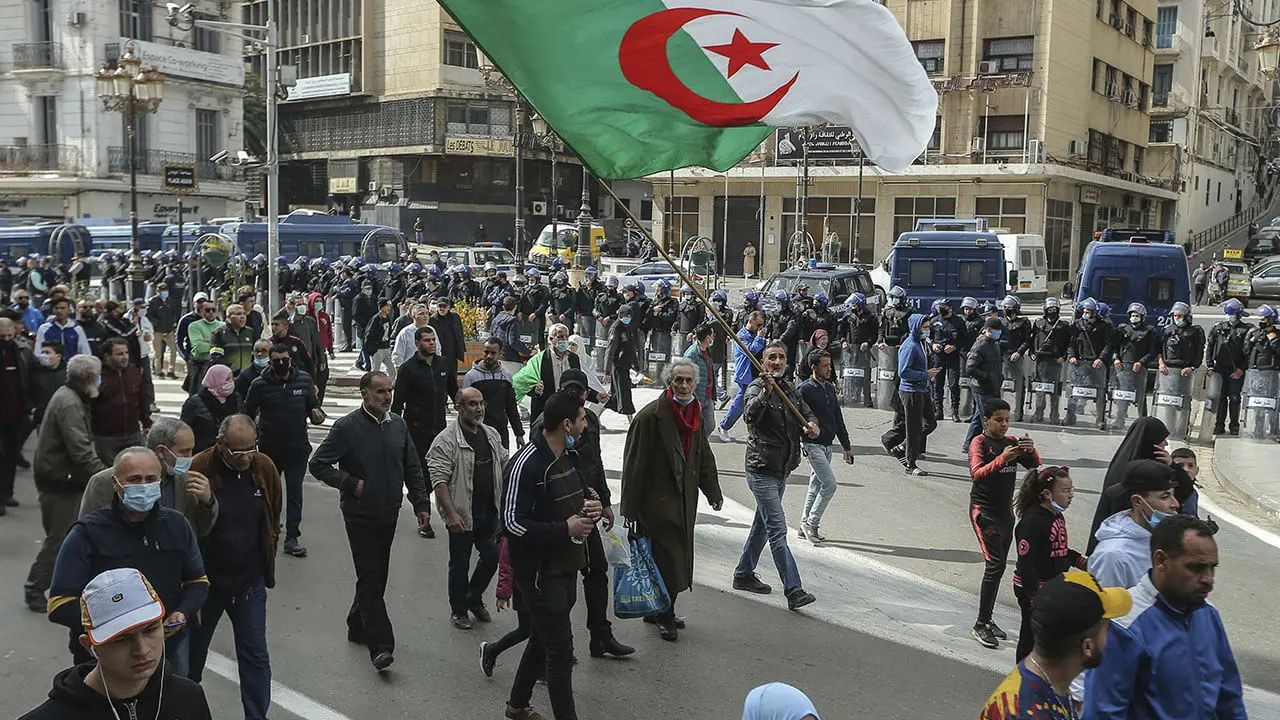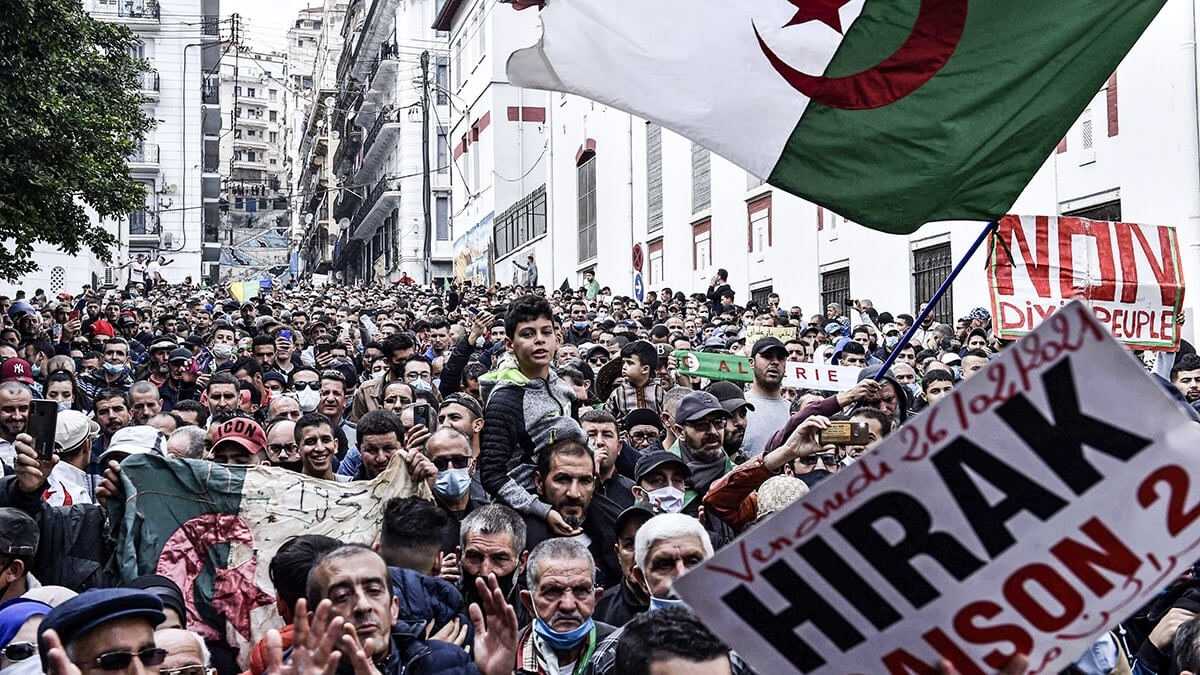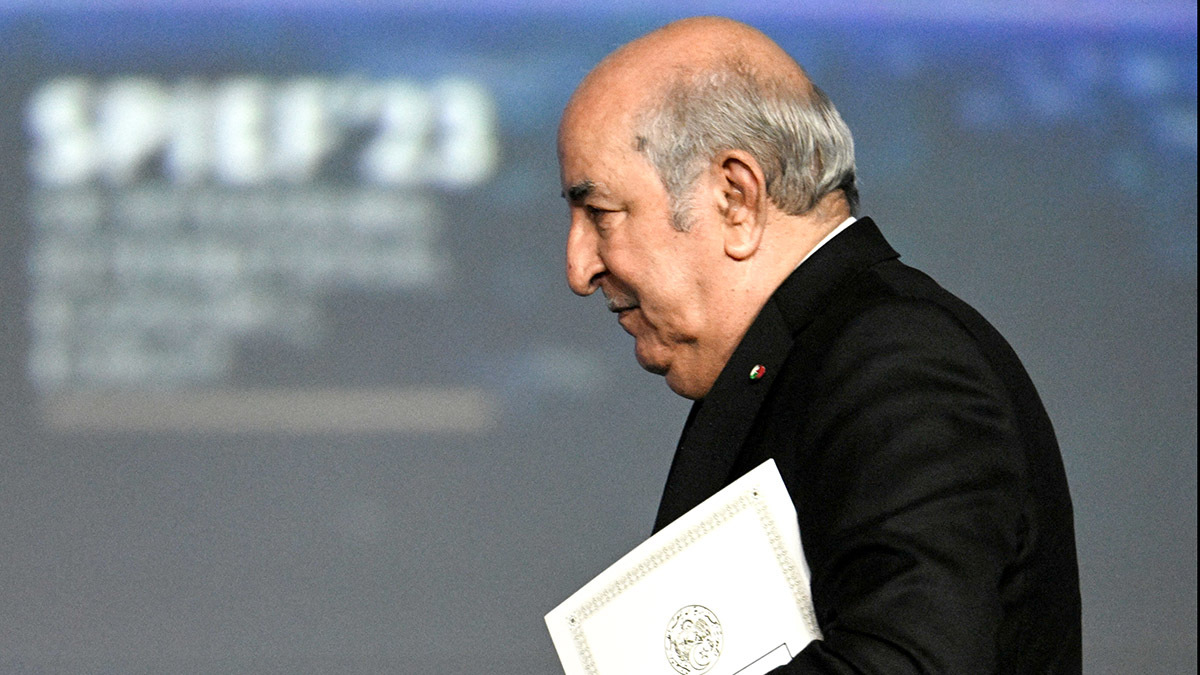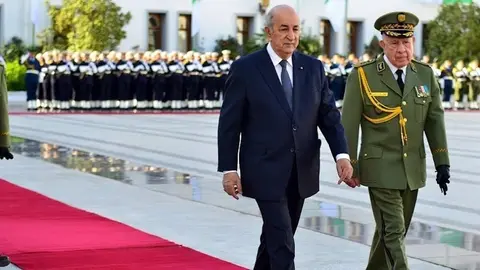Amnesty International condemns repression of peaceful dissent in Algeria

Six years after the start of the Hirak movement and amid new peaceful protests, Amnesty International has denounced an alarming and growing crackdown on peaceful dissent in Algeria in response to a recent digital protest campaign. In a statement, the human rights organisation accused the Algerian authorities of carrying out arbitrary arrests and unfair trials, resulting in lengthy prison sentences.
According to Amnesty, in the last five months at least 23 activists and journalists have been arrested and convicted for their alleged support for the online protest movement ‘Manich Radi’ (loosely translated as ‘I disagree’), a campaign that emerged in December 2024 to denounce human rights restrictions and the difficult socio-economic conditions facing the country.
‘All have been detained solely for the peaceful exercise of their human rights, and most are currently serving prison sentences or awaiting trial,’ the statement said.
‘The Algerian authorities‘ track record of stifling online activism is alarming and must be reversed,’ said Heba Morayef, Amnesty's regional director for the Middle East and North Africa. ‘Nothing can justify the arrest and imprisonment of people solely for expressing their dissatisfaction with political and socio-economic conditions,’ she added.
Amnesty International has documented nine representative cases of activists and journalists persecuted for exercising their freedom of expression online. Seven of them were convicted and sentenced to prison terms ranging from 18 months to five years, solely for their peaceful activity and expression on digital platforms.
In five of these cases, the trials were conducted through expedited proceedings that prevented the defendants from preparing an adequate defence, in clear violation of their right to a fair trial. In addition, the authorities arbitrarily detained an activist and a journalist for several days, imposing on the latter an abusive ban on travel and on publishing content on social media.

Among the most prominent cases, Amnesty cited the March 2025 sentencing of activists Soheib Debbaghi and Mahdi Bazizi, who received 18 months in prison for their links to the ‘Manich Radi’ movement. Debbaghi was found guilty of ‘publishing content harmful to the national interest.’
They were not the only ones. On 20 January 2025, just four days after his arrest, renowned activist and poet Mohamed Tadjadit was sentenced by a court in Rouiba (Algiers) to five years in prison and a fine of 500,000 Algerian dinars (about 3,465 euros). The trial, which was conducted in an expedited manner, was based exclusively on social media posts, including poems with political content and messages tagged #Manich_Radi. The court found him guilty of a series of charges including ‘undermining national unity’, ‘publishing content harmful to the national interest’, ‘inciting an unarmed gathering’ and ‘offending public bodies’.
A few days later, on 4 March, the court in Tizi Ouzou also sentenced activist Belaid Charfi to four years in prison, a fine of 100,000 dinars (693 euros) and additional compensation of 10,000 dinars (69 euros).

On 21 February, in the city of Azazga, trade union activist Fadhila Hammas was arrested and questioned by the police about her Facebook posts, which focused on political and human rights issues. She was released four days later but is still awaiting trial, scheduled for 11 May, where she could face up to three years in prison for ‘publishing false information likely to undermine public order and security’.
Also in February, on the 16th, the Ouargla Court upheld the sentence against activist Abla Derama Kemari, sentencing her to three years in prison (one of them suspended) and a fine of 300,000 dinars (2,079 euros) for Facebook posts criticising the socio-economic situation in the Saharan regions and denouncing the repression of activists.
In Tizi Ouzou, on 14 January, the sentence against activist Massinissa Lakhal was also upheld. He received a three-year prison sentence, a fine of 5,000,000 dinars (34,645 euros) and compensation of 200,000 dinars (1,386 euros). The sentence was based on his activity on Facebook, such as following accounts linked to the Movement for the Self-Determination of Kabylia (MAK) – declared a terrorist organisation by the authorities – as well as his connection with other activists in the movement, including his father, Ammar Lakhal, former representative of the MAK in Canada.

Among the journalists persecuted, the case of Abdelwaheb Moualek stands out. He was convicted on 25 February by the court in Sidi Aich, in Beja, after a trial without a lawyer and conducted in an expedited manner. He was sentenced to 18 months in prison and a fine of 100,000 dinars (693 euros) for a Facebook post in which he commented on the repression. He is currently free, awaiting the outcome of his appeal.
Finally, on 2 January, journalist Mustapha Bendjama was questioned by an investigating judge in Annaba because of his Facebook posts. Although he was not arrested, he was placed under judicial supervision and banned from travelling outside the country and the Annaba region, as well as being required to refrain from publishing any content that the authorities consider harmful to the national interest.
This wave of repression comes in the context of the sixth anniversary, celebrated in February, of the pro-democracy Hirak movement, which since 2019 has been key in the popular demand for profound political reforms in Algeria.
Amnesty International concluded its statement by urging the Algerian authorities to immediately cease the repression of peaceful dissent and to respect the legitimate right to freedom of expression.










